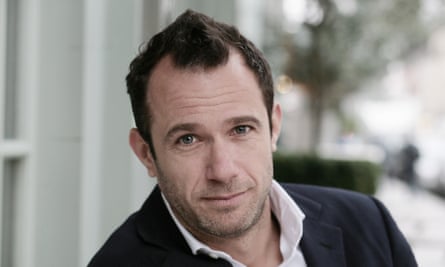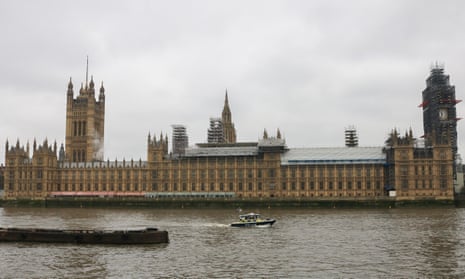A new political party with access to up to £50m in funding has been secretly under development for more than a year by a network of entrepreneurs, philanthropists and donors keen to “break the Westminster mould”, the Observer can reveal.
The movement, spearheaded by a former Labour benefactor, is understood to have been drawn up by a group frustrated by the tribal nature of politics, the polarisation caused by Brexit and the standard of political leadership on all sides. It appears to have a centrist policy platform that borrows ideas from both left and right.
Senior figures from the worlds of business and charity are understood to be involved, as well as former supporters of the main parties, including a number of former Tory donors.
Sources say the project, led by the multi-millionaire philanthropist and founder of LoveFilm, Simon Franks, has had full-time staff members for as long as a year. Initial discussions are said to have begun at the end of 2016. Franks has set up a company, Project One Movement for the UK, which is likely to be the vehicle for the enterprise.

Some of those involved have apparently been keen for the project to concentrate on funding community activism, rather than becoming a formal political party. A final decision has not yet been taken, but there is said to be a consensus that the movement will run candidates at the next election, due in 2022, should the current parties be deemed to be failing. Some form of political movement could be launched later this year.
There has been persistent speculation about the potential of a new party as Jeremy Corbyn’s leadership has taken Labour to the left, while a Tory hard Brexit has alienated some on that party’s modernising wing. The Lib Dems have been unable to take advantage of the polarisation.
While figures from across the political spectrum are said to be involved in Franks’s project, much of its policy platform appears to be aimed mainly at a liberal, centre-left audience. Potential policy proposals include asking the rich to pay a fairer share of tax, better funding for the NHS and improved social mobility. However, it also backs centre-right ideas on wealth creation and entrepreneurship, and is keen to explore tighter immigration controls. A source said some Brexit supporters are involved.
Franks could not be reached for comment, but the Observer understands up to £50m is available and that the group has consulted political experts around the world in an attempt to create a credible plan to challenge the existing parties.
It is believed the new movement is not trying to convince MPs to defect as part of its launch. However, there are plans to reach out to MPs deemed to meet its non-partisan approach.
The project appears to be the most significant attempt to challenge the main parties yet to emerge. However, Britain’s electoral system and the reluctance of existing politicians to make the jump makes it extremely difficult to make a success of a new party.
The formation of a new party could represent a challenge to both the Lib Dems, who remain in the doldrums, and Labour, which is divided over Corbyn’s leadership and has been plagued by accusations of antisemitism by some members.
Franks, who co-founded Redbus Film Distribution and has since set up a charitable foundation, is the de facto leader of the new movement. What is said to unite those involved is a frustration with current party politics and the short-termism of professional politicians.
The group is said to have drawn up policy documents. Part of its attempt to break the traditional mould of politics would see all potential candidates asked to sign strict term limits, to stop the current practice that sees MPs in safe seats remain in post for decades.
Other than Franks, the identities of those involved remain secret and no launch date has been scheduled. It remains unclear how they intend to navigate Britain’s “first past the post” electoral system.
“They know that they might fail and that they will need some luck,” said one source. “But they care about this country and they want to challenge the way things are currently done by our current crop of professional politicians. They want to break the mould of Westminster politics.”
Comparisons will inevitably be drawn with Emmanuel Macron’s centrist En Marche! movement, which delivered him the French presidency and earned a majority in France’s national assembly last year.

Others who have been approached by the group remain deeply sceptical about its chances of success, pointing out that past attempts to defeat the mainstream parties have ended in failure. In the 1980s, four senior Labour figures broke away to lead the new Social Democratic Party. It formed part of a liberal alliance that secured 7.8m votes at the 1983 election, but ended up with just 23 seats.
“They have the resources, but I’m not sure they have a viable plan,” said one person familiar with the project.








